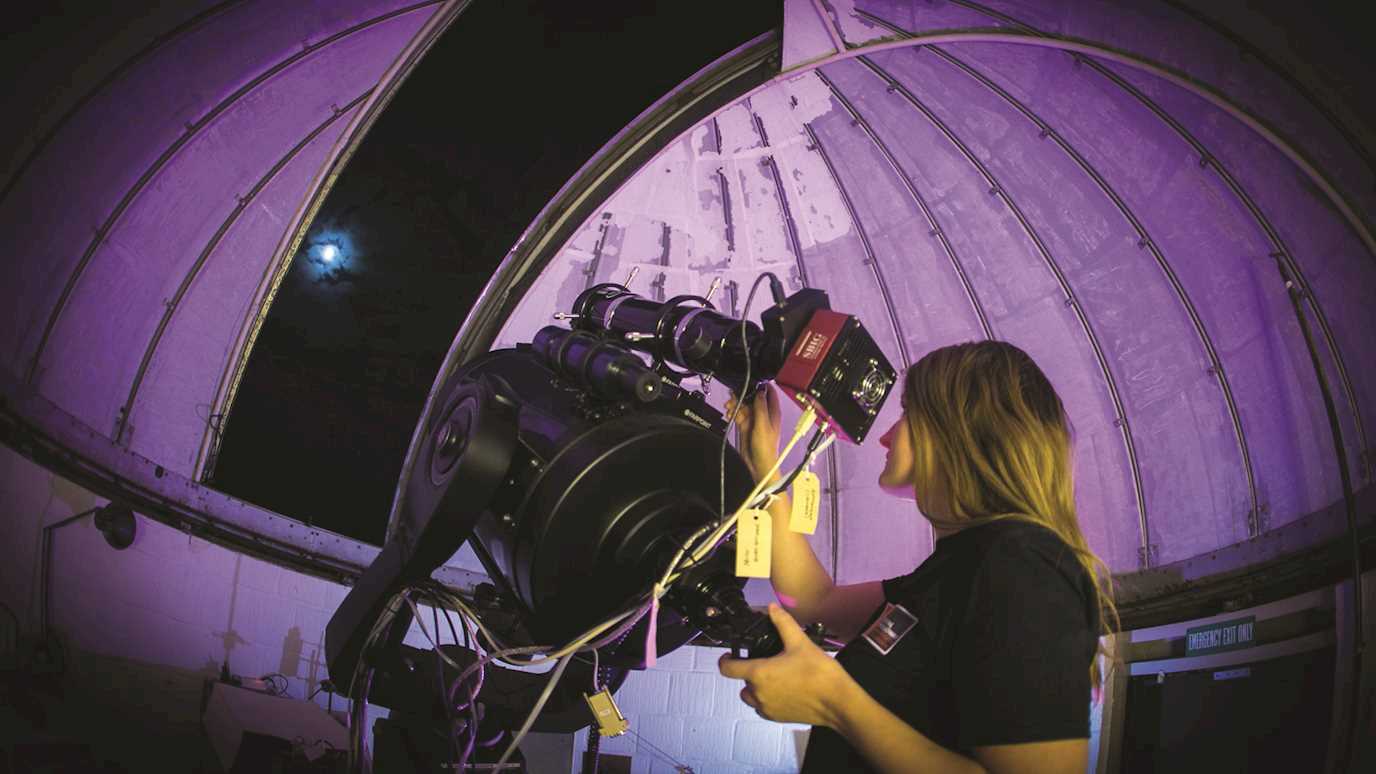This event has been archived
Dr Magdalena Muenker (CERN)
Monolithic CMOS sensors with a small collection electrode - developments for future HEP experiments
To achieve the goals of future High-Energy Physics (HEP) experiments, silicon tracking detectors are required to meet various challenging requirements simultaneously: a very precise spatial and timing resolution, a low material budget as well as high radiation tolerance while maintaining a reasonable production and cost effort. Monolithic Active Pixel Sensors (MAPS) combine the sensing part and the readout circuitry in one layer. With this, the production effort, costs and material budget can be significantly reduced. Placing the readout circuitry in the sensing layer however impacts the sensor response and requires a careful optimisation. One design stream of CMOS MAPS follows the goal to minimise the sensor capacitance by minimising the size of the collection electrode. The advantages of a small sensor capacitance, such as a low analogue power consumption, a low noise and detection threshold and a large ratio of signal to noise make these designs promising to reach the requirements of future HEP experiments, especially when combining with the advantages of a fully monolithic design. Such sensors have been developed in a 180 nm process for the ALICE ITS upgrade and further modified to reach full lateral depletion, being of relevance to reach radiation tolerance e.g. for future upgrades of the ATLAS inner tracker and to reach a few nanoseconds timing resolution e.g. for CLIC. This seminar will give an introduction to MAPS and their application in HEP and further go into recent development of MAPS produced in a CMOS technology with a small collection electrode.
Room : T125























